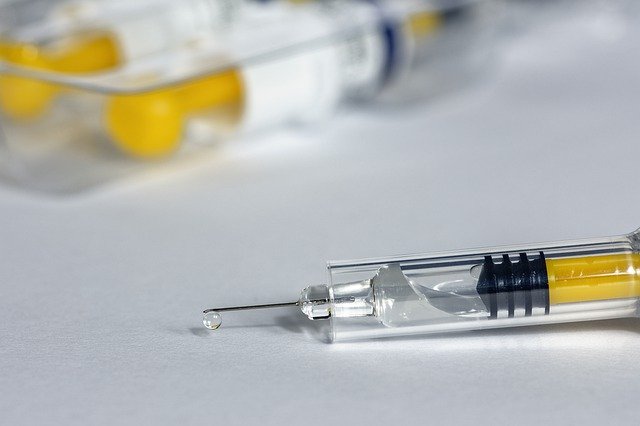Michael Loftus is the Executive Director of Integrium Clinical Research, a clinical CRO headquartered in California, United States, specialized in executing phase I, II, III, and IV clinical trials to develop better treatments.
Integrium works with early to mid-stage biotechnology companies, offering them a unique biotech ecosystem for their drug development programs.
Our conversation with Mike will focus on the needs and challenges of biotech companies in their early phase development programs, including key advice and recommendations to navigate the complexities of running clinical trials.
Patricio Ledesma (PL): Mike, it is great to talk to you about the needs and challenges that biotech firms face in their early phase drug development programs. First off, what are the main common difficulties that small biotechs encounter when starting their drug development plans?
ML: There are so many great early stage biotechs with great science. The most common issues we see are translating these assets from preclinical to clinical. 80% of biotechs heading into phase I WILL have a manufacturing delay. My biggest piece of advice: Make sure the Contract Manufacturer relationship is set up well in advance of the clinical trial. We have seen delays of 6 months to up to 2 years in getting product sourced and ready for clinical trials.
PL: How can Integrium help biotech companies in their early development needs?
ML: We have many relationships in the biotech ecosystem. If we are discussing a Phase I clinical trial, 9 months prior to the first patient enrolled, we can use our network to help speed up the learning curve within the manufacturing process.
PL: Drug development is a long-term adventure with all types of obstacles in the way. I am sure you have walked side by side with many biotech firms providing them with guidance in the early steps. What key recommendations would you make to biotech CEOs who find themselves at the beginning of the drug development marathon?
ML: Great question, Patricio! Besides the manufacturing challenges, the second biggest road block is funding / financing. Rule of thumb: Raise more capital than you think you will need, and raise capital when you do not need it. Capital is VERY expensive when the investors know you need it.
PL: Let’s talk about clinical trial funding. Clinical studies require substantial financial investments. Does Integrium facilitate solutions for raising capital?
ML: Integrium has access to a financing vehicle, for up to 3 million US, specifically for PUBLIC microcap biotechs listed on the Nasdaq, NYSE (and other major stock exchanges). In the last 4 years, Integrium, with the help of PoC Capital (www.poccap.com), has financed at least 8 clinical programs within Phase Ia, Ib, IIa and small Phase IV.
PL: Clinical trials are highly complex projects, usually involving multiple vendors and specialized services. In addition, counting on the right clinical sites is key to clinical trial success. Finding and interacting with so many suppliers can be challenging and time consuming, even frustrating sometimes. How can clinical trial sponsors increase their operational efficiency when planning and executing clinical trials?
ML: 1) Reach out to us early. If we have an initial call to discuss the clinical study 9 months in advance of the actual clinical trial start date, we can go through many questions and provide some good answers (from 22 years of experience). 2) Make sure the clinical financing / capital is in place or being negotiated at least 9 months in advance.
PL: After their phase 1 trials, many biotechnology companies have the need of running larger phase 2 and 3 clinical studies in other parts of the world, like Europe or Asia. What is your counsel when planning clinical trials abroad?
ML: Each situation and clinical trial is different. If you consult our experts, we can find out which countries have the most patients with a specific disease state. Now this is not always free information so there are usually costs associated for a feasibility assessment. However, this is the best way to ensure a higher probability of a successfully enrolled clinical trial on time and on budget. Many trials can be enrolled in the USA with the addition of one or two other countries; specifically for a 50-100 sites clinical trial. If the clinical site size is greater than 100 there may be more than 2-3 countries involved.
PL: In 2020 the world experienced the unexpected appearance of the COVID-19 pandemic. What impact has coronavirus had on clinical trial operations in the U.S. (e.g. patient recruitment, monitoring activities; particularly in non-COVID-19 studies) and what is your forecast for 2021?
ML: The regulatory environment has been the biggest issue. During the on-set of COVID-19, right around the March 2020 time frame, we started suggesting to our clients: 1) conduct smaller trials within the clinical pipeline and 2) stay local (if possible) within the USA (and or whatever country the biotech is headquartered in).
Since Integrium is headquartered in California, this plan has proved easier to facilitate, working with many companies in California and keeping most of the clinical sites in California. By doing this, we cut down on the uncertainty of multiple states and countries with multiple rules and regulations.
NOW, that the whole world has been affected in some capacity, the rules and regulations are more clear. I believe 2021 will be a year of record clinical development as so many biotechs pushed back their clinical plans.
I had one Chief Medical Officer friend (outside of Integrium) tell me, “I have 6 different biotechs I am serving as the CMO for… I have advised all of my clients not to conduct trials until Q1 2021.”, meaning to start clinical trial planning in later Q3 2020, and then engage a CRO in early Q4 2020 with the plan of the first patient enrolled in Q1 2021.
I must admit, it seems my CMO friend was correct. Many biotechs (not just his clients) have done this. We have seen a huge uptick in RFP volume and requests with a first patient enrolled scenario for January 2021
Moving forward in 2021, I believe it makes sense to conduct a trial in the USA with no more than 1 or 2 additional countries to limit any risks, if the virus re-emerges or mutates.
As I suggested above, now that we all have been affected (in some capacity), most governments have taken steps and enacted legislation specific to the conduct of clinical studies, in one form or another.
PL: Any final words of wisdom you would like to share with our readers involved in the gigantic task of developing new drugs?
ML: Reach out to Integrium early, to discuss clinical objectives, and we will formulate a plan together. Start raising capital now, more than you think you need. Contact your Contract Manufacturing Organization 3-6 months earlier than you have planned to. If possible, conduct some of the smaller clinical trials (on the bench or in the clinical pipeline) to manage regulatory risk. Find clinical partners that are happy to hold your hand through the process. The big CROs may have a large infrastructure, however, many of them do not want to deal with all the issues of first time drug developers.
About Integrium
We are Laser Focused Clinical Experts with solid experience in various therapeutic areas (including but not limited to) Cardiovascular, Metabolic, Oncology and Gene Therapy. We execute Phase I, II, III and IV clinical trials within the USA, and with proven partners abroad, such as Sofpromed, to ensure global footprint. Since we have conducted over 500 clinical trials, in all clinical phases, we enjoy partnering with small to mid-sized biotech, medical devices, and diagnostic companies.









